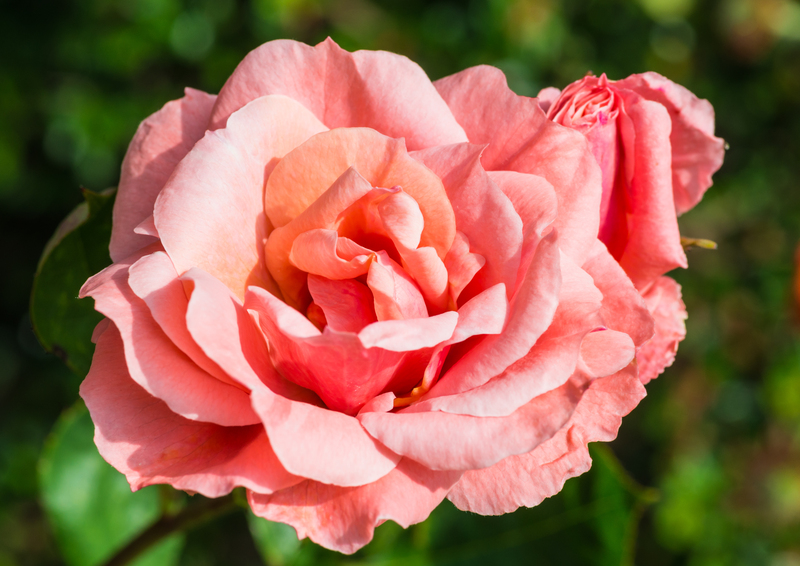Introduction to Broadleaf Weeds
Posted on 05/03/2025
Broadleaf weeds are a group of problematic plants known for their wide, flat leaves that differ significantly from grass-like weeds. They are often found in lawns, gardens, and agricultural fields, where they compete with desired plant species for nutrients, water, and sunlight. Understanding broadleaf weeds, their impact, and strategies for control is essential for maintaining a healthy and productive landscape.
What Are Broadleaf Weeds?
Broadleaf weeds are characterized by their broad, flat leaves that usually have a complex vein structure. Unlike grasses, which have narrow leaves, broadleaf weeds exhibit a variety of shapes and sizes. Examples of common broadleaf weeds include dandelions, clover, chickweed, and plantain.

The Impact of Broadleaf Weeds
The presence of broadleaf weeds can significantly affect both the aesthetics and health of lawns and gardens. These weeds often outcompete desirable plants for resources, leading to poor growth and reduced yields. Moreover, broadleaf weeds can harbor pests and diseases that further threaten the health of cultivated plants.
Identifying Broadleaf Weeds
Effective management of broadleaf weeds begins with accurate identification. Key characteristics to look for include:
1. Leaf Shape: Broad and flat with veins branching out from a central midrib.
2. Growth Pattern: Rosette formation or spreading habit.
3. Flower Structure: Distinct flower heads, often with brightly colored petals.
4. Seed Heads: Unique seed structures that can be a clue to the weed species.
Common Types of Broadleaf Weeds
Some of the most prevalent broadleaf weeds include:
1. Dandelion (Taraxacum officinale): Recognizable by its bright yellow flowers and fluffy seed heads.
2. Clover (Trifolium spp.): Features trifoliate leaves and white or pinkish flowers.
3. Chickweed (Stellaria media): Small leaves and white star-shaped flowers.
4. Plantain (Plantago spp.): Broad, flat leaves with prominent veins and small white flowers.
Strategies for Controlling Broadleaf Weeds
1. Cultural Practices:
- Maintain a healthy lawn or garden to outcompete weeds.
- Proper mowing, fertilization, and irrigation can help prevent weed establishment.
2. Mechanical Control:
- Hand-pulling or hoeing can be effective for small infestations.
- Regularly remove weeds before they set seed to reduce their spread.
3. Chemical Control:
- Selective herbicides specifically target broadleaf weeds without harming grasses.
- Apply pre-emergent herbicides to prevent seed germination and post-emergent herbicides to kill established weeds.
The Pros and Cons of Broadleaf Weeds
Pros:
- Biodiversity: Some broadleaf weeds can provide habitat and food for pollinators and other wildlife.
- Soil Health: Deep-rooted weeds can help break up compacted soil and improve soil structure.
Cons:
- Competition: Weeds compete with desired plants for resources, often leading to reduced growth and yields.
- Aesthetic Impact: Many view broadleaf weeds as unsightly, disrupting the uniform appearance of lawns and gardens.
Tips for Managing Broadleaf Weeds
1. Regular Monitoring: Regularly inspect your lawn and garden to catch weed issues early.
2. Healthy Plant Practices: Promote healthy plant growth to naturally suppress weed growth.
3. Integrated Approach: Combine cultural, mechanical, and chemical methods for effective weed management.

Key Takeaways
- Broadleaf weeds have distinct characteristics that set them apart from grasses.
- Effective weed management relies on proper identification and a combination of control methods.
- Regular monitoring and healthy plant maintenance practices are essential for preventing and controlling broadleaf weeds.
Conclusion
Broadleaf weeds pose a significant challenge to gardeners and agricultural producers. By understanding their characteristics, impacts, and the various strategies available for control, you can effectively manage these troublesome plants. Remember to integrate multiple approaches for the best results and maintain vigilance to keep your landscapes weed-free and thriving.












